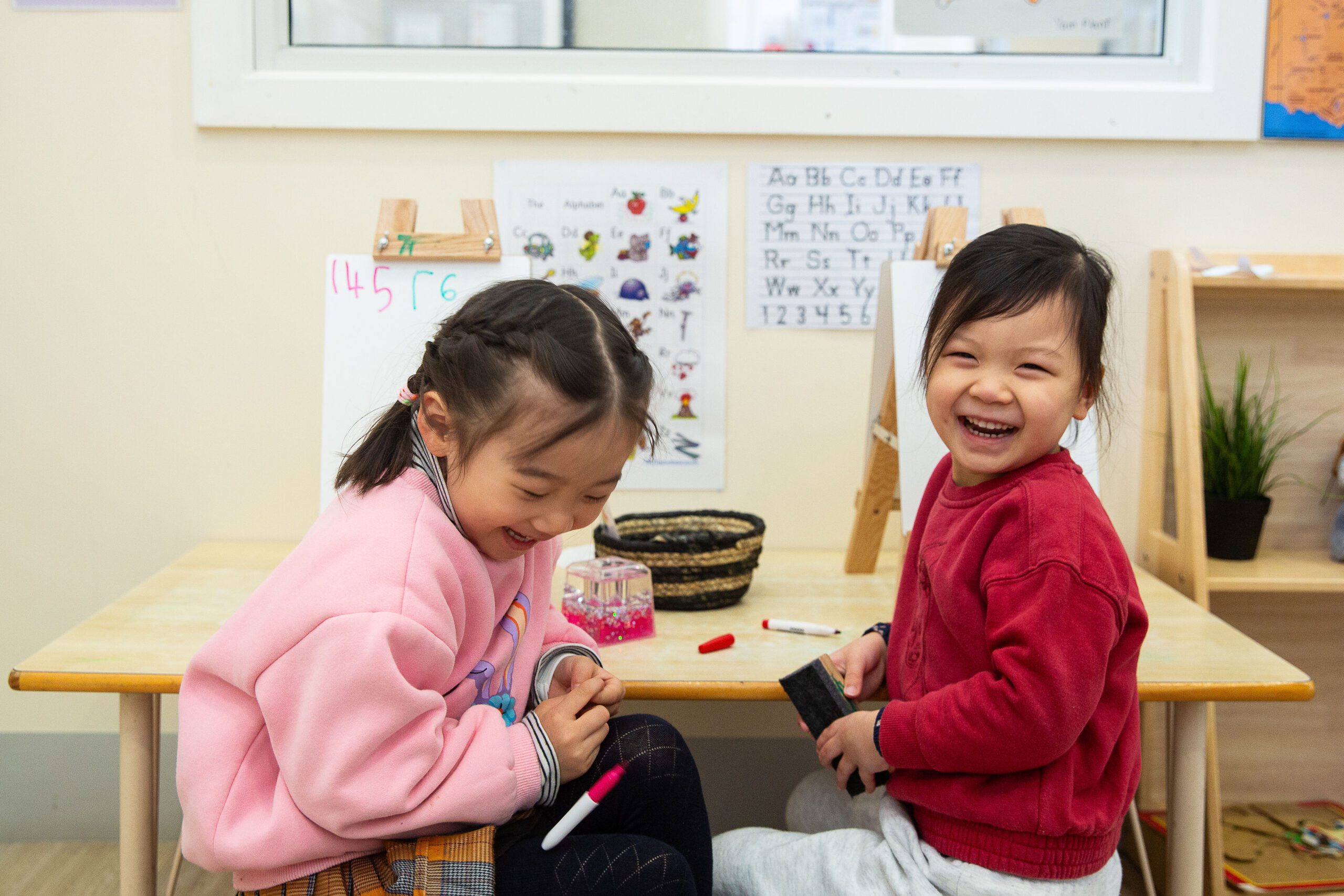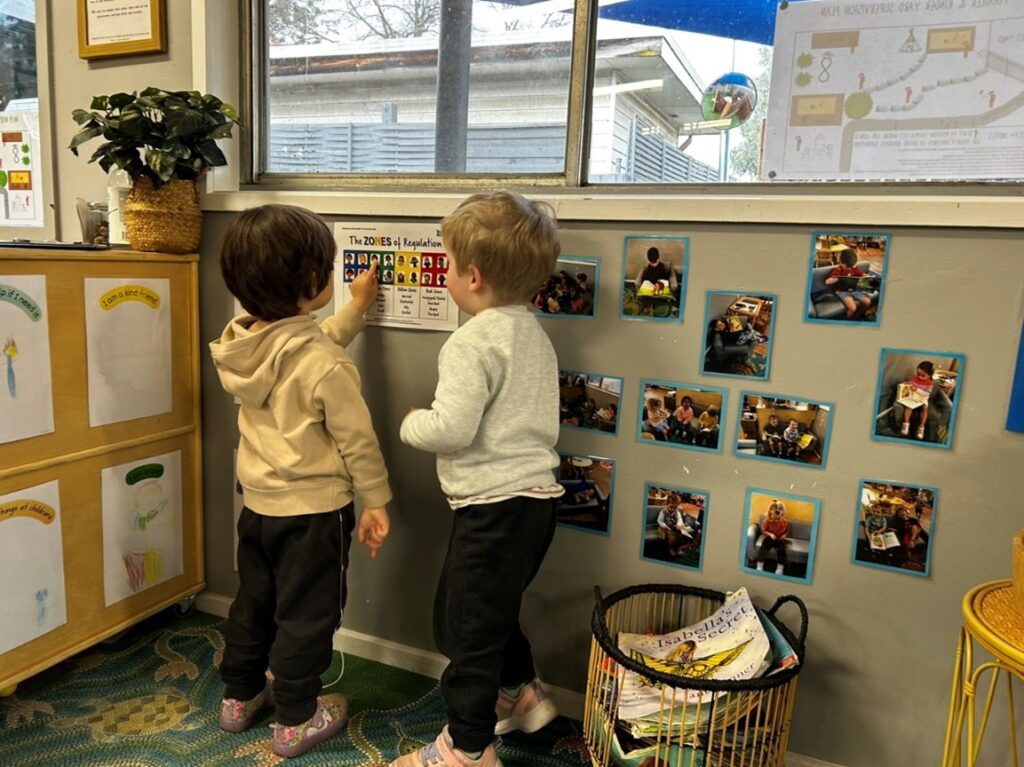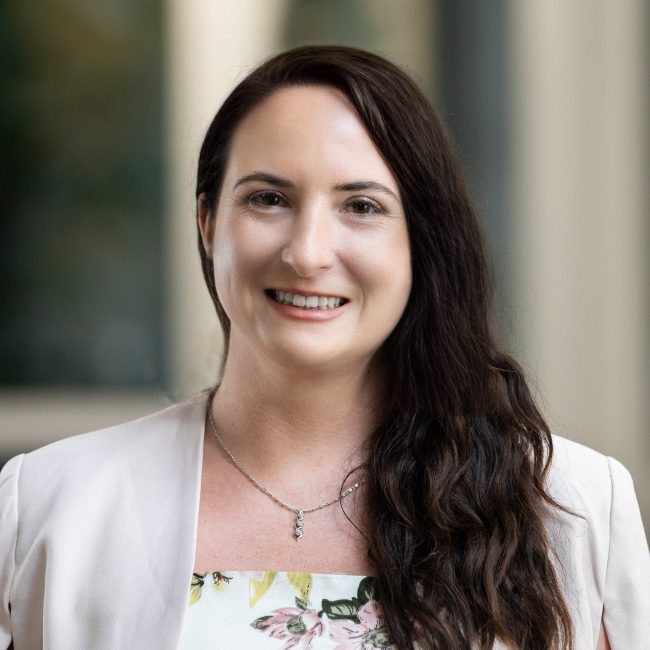
Research continues to highlight the importance of the first five years of a child’s life as the most critical period in the life span for brain development (Fox & Geddes, 2016). The richness and quality of early experiences during this critical time have lifelong impacts on future trajectories at school and beyond (OECD 2016). Our Lifelong Learning Curriculum strives to provide everything children need to develop a lifelong love of learning and be socially and emotionally resilient before moving from our centres. - Dr Lesley Jones
Why is it important?
Parents always prioritize positive behaviours and relationships for their children who are about to attend school. It is common for families to feel anxious about their child’s social behaviour and interactions, especially in a world that moves at a fast pace and where social expectations are high; however, every child is different and develops skills at their own pace. A consistent environment that exposes them to positive behaviour and interactions allows children to learn, practice, and grow at their own pace, building the foundation for their future achievements. Consistency in the environment will help them build confidence, emotional regulation, and other essential values that are crucial to their development for 21st-century schooling.

Early education prepares children for school by fostering positive behaviour and nurturing meaningful relationships. According to Attachment Theory, developed by John Bowlby, children form secure attachments with their caregivers in early childhood settings, which can translate into healthier social and emotional development. These early relationships lay the foundation for building trust and empathy, vital skills for successful interactions in school and beyond. Additionally, daycare environments often follow structured routines and group activities, which help children develop self-regulation and cooperation.
This exposure to peer interactions fosters prosocial behaviour as children learn to share, communicate, and resolve conflicts effectively. Consequently, when children transition to school, they arrive with a strong social and emotional toolkit, setting them up for academic success and positive peer interactions. Early childhood centres, therefore, not only provide a safe and nurturing space for children but also equip them with the social and emotional skills essential for a successful school experience.
How can this be achieved?
The environment is widely regarded as the third teacher for children. Home, childcare, and school all play a significant role in fostering positive behaviour and relationships in children. Although their home is generally considered a safe environment for children, it is not the only place where they can learn, grow, and establish new routines. Childcare is the next step for kids to familiarize themselves with different routines and people outside of the home without feeling rushed into it. Research indicates that providing children with frequent access to high-quality early education and care services leads to better learning outcomes, improved well-being, and positive behavioural outcomes. This investment in children’s development has a significant impact, preparing them for lifelong learning. Early education provides the foundational level for children to observe, learn, and implement positive behaviours in a flexible, routine environment; additionally, it allows them to understand, explore, and develop positive relationships with children and adults at their own pace. Childcare can help prevent children and families from experiencing shyness, anxiety, and other big emotions on their first day of school.
Creating a supportive and inclusive environment is also essential. Educators celebrate diversity, emphasizing that differences are valuable and everyone is welcome and respected. Group activities and collaborative projects promote teamwork and build positive peer relationships. Educators provide opportunities for children to make choices and take on leadership roles, fostering a sense of autonomy and empowerment.

Positive reinforcement through praise and recognition of children’s efforts and achievements goes a long way in shaping their behaviour and self-esteem. By combining these strategies with empathy and a genuine love for teaching and nurturing, our educators can cultivate an atmosphere of trust, mutual respect, and positive relationships in our centres.
Other ways to improve on positive behaviours & relationships:
- Role- modelling
- Sharing readings
- Outdoor activities
- Connecting with other families (e.g. arranging play dates)
What does the collaboration between educators & families look like to achieve this?
Role modelling positive relationships between families and Educators allows children to feel a sense of trust and belonging; this is where true transparency is achieved, and partnerships with schools are formed to ensure all children experience a smooth transition to school. Frequent and open communication may look like sharing which school your child will be attending to nurture relationships with peers who may be attending the same school to allow your child to feel a sense of security during their transition.

Clear communication and transparency may also sound like discussions between you and your child’s Educator to confer about age-appropriate goals to work towards during their time in an ECEC setting. For example, ‘building emotional confidence in a social setting’ can directly correlate to how they settle into their environment in Primary School.

